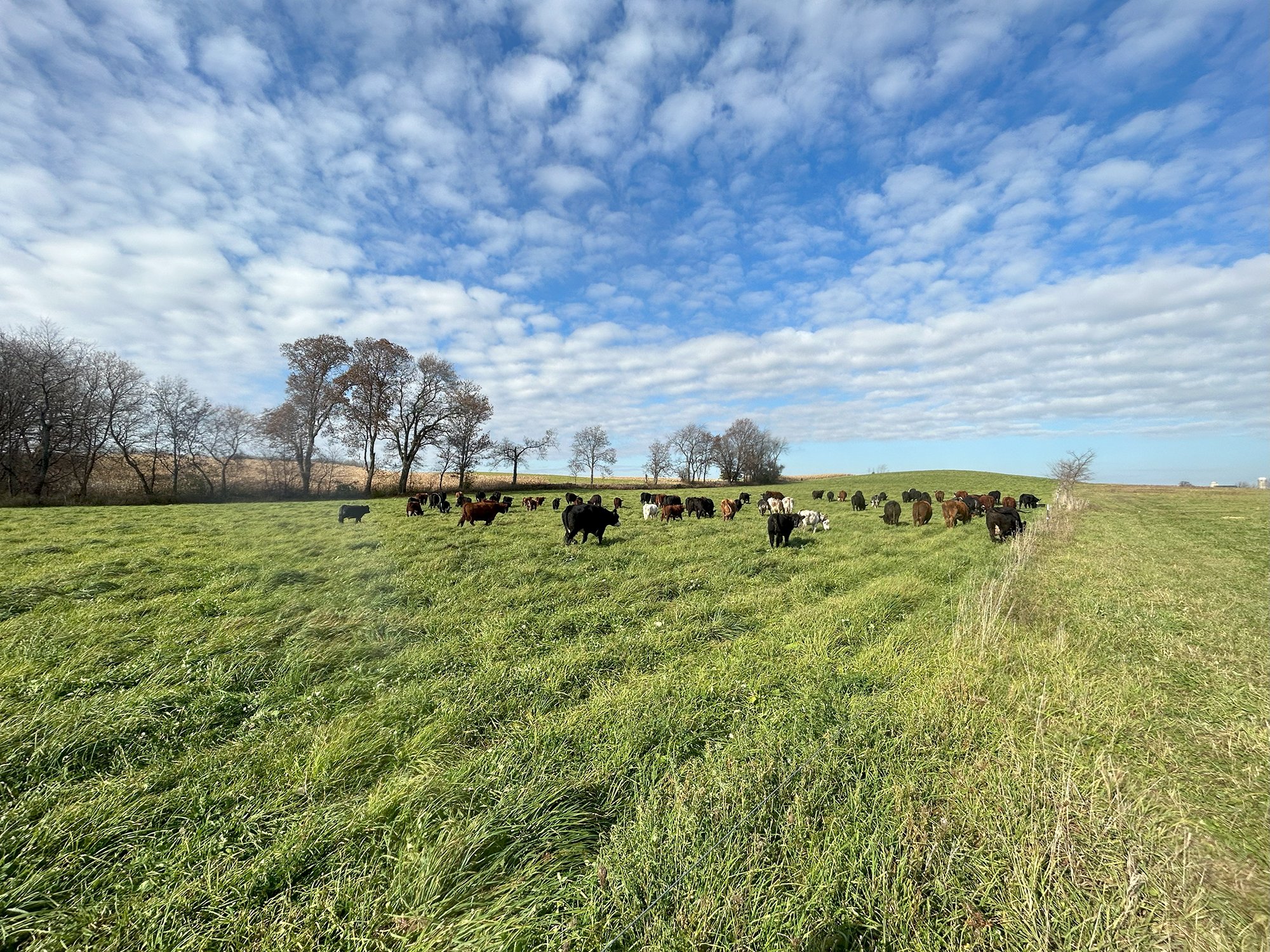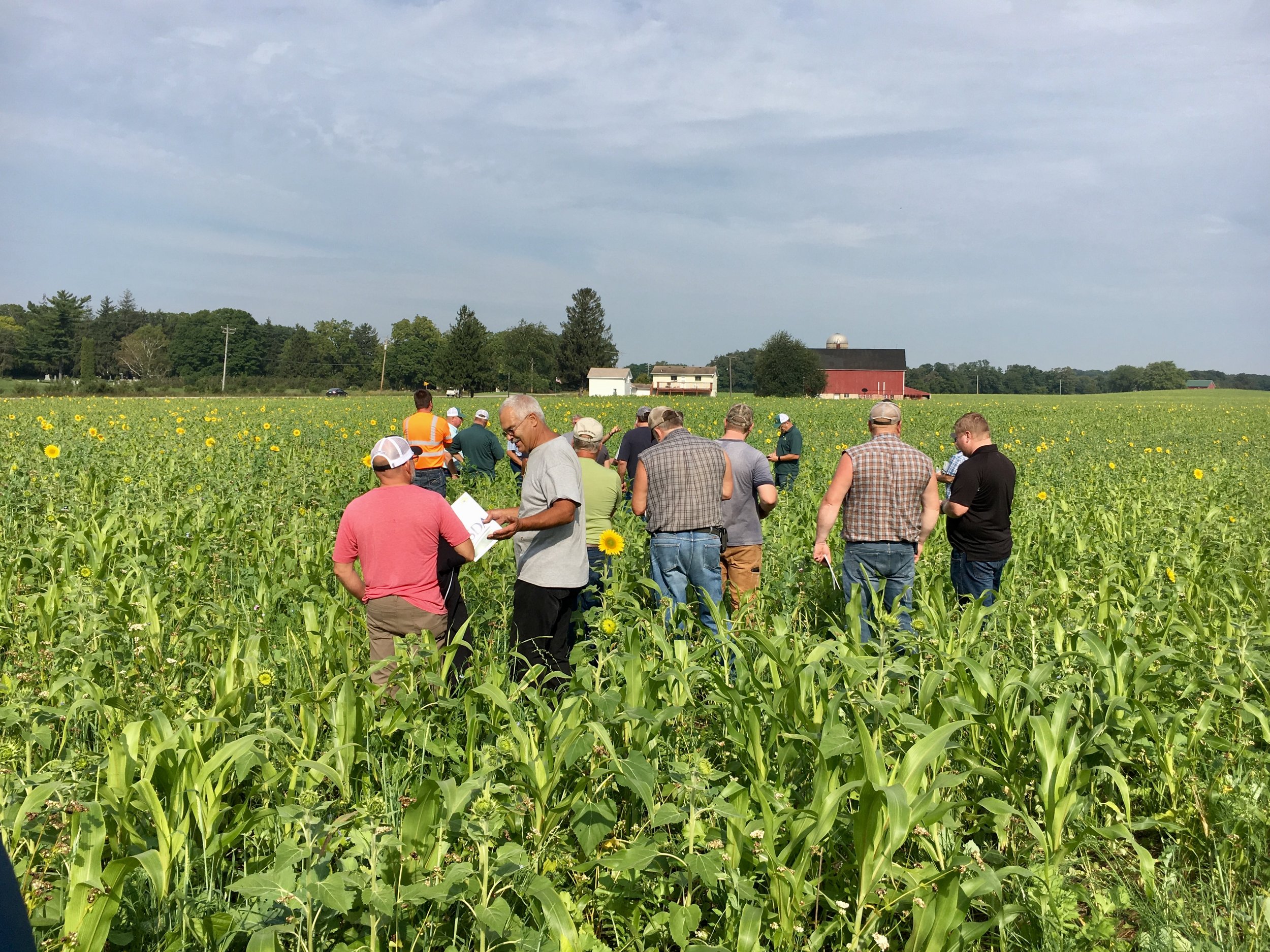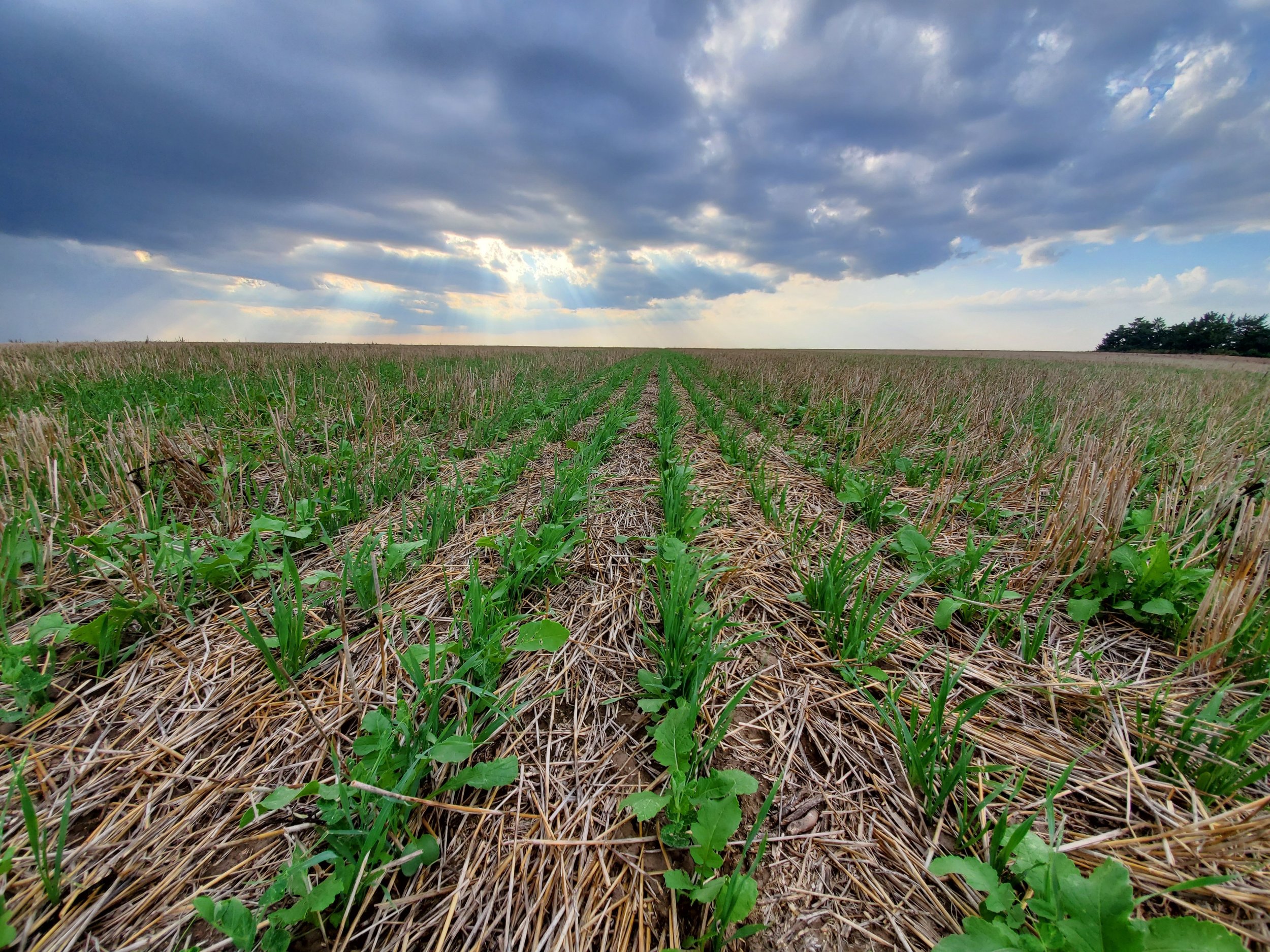
Regenerative Farming
Farming practices that improve natural resources
Farming practices that earn farmers a living wage
Farming practices that protect the public from externalized costs
Our Approach
We are a group of farmers working together to improve our community, water, natural resources and farms through regenerative methods and rotational grazing.
We start with innovative regenerative farming techniques that build soil, purify water, support wildlife diversity and keep nutrients on our farms. Cover cropping and rotationally grazing livestock on permanent pastures capture nutrient runoff before it can enter local water sources, all the while keeping rainfall on our farms. We use nature’s biology rather than chemistry. A healthy microbial soil makeup is supported by keeping soil covered with living and decomposing plants and by minimizing soil disturbances from synthetic and chemical additives, over-application of manure and tillage. Increasing the biodiversity of plants, animals, birds, insects and soil microbes reduces disease, stimulates plant growth and provides habitat for pollinators and soil organisms, all while producing healthy and delicious local products that support the local food system.
As graziers, we strive to “close the loop” in our farming practices to reduce and eliminate waste and runoff. This is achieved by earning the right to reduce inputs through management and allowing the plants and animals (above and below the ground) to manage the soil and recycle nutrients back into the farming system. As time passes and we observe and refine our management of the land, this “loop” gets smaller.
As the pandemic showed, having only a few participants controlling a majority of the market reduces stability. We add diversity back to our sustainable farming practices and to the supply chain, effectively strengthening our agriculture system and safeguarding local air, water and soil.
Our Goals
Keep soil covered at all times with living and decomposing plants
Keep living roots in the ground as long as possible
Minimize soil disturbances from synthetic and chemical additives, over-application of manure and tillage
Maximize biodiversity through diverse cover crops and crop rotations
Incorporate rotational grazing
What We Support and Strive For
“Do unto those downstream as you would have those upstream do unto you.”
— Wendell Berry








